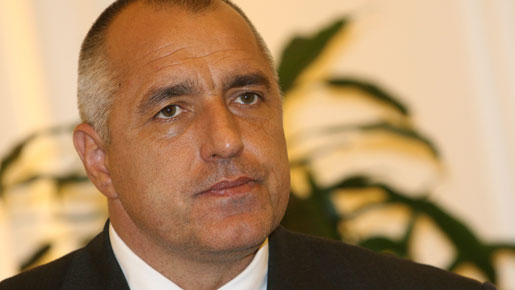
The new centre-right government has two months to tackle legal lapses by the previous cabinet to avoid losing access to $4.48bn in EU rural and farm aid, Farm Minister Miroslav Naidenov told a news conference.
The new centre-right cabinet, elected last July on pledges to clean up Bulgaria’s image as the most corrupt EU state, also has a month to try to avert EU fines over illegal land swaps, Prime Minister Boiko Borisov told the same news conference.
Borisov put the blame on the previous Socialist-led administration, widely accused of incompetence and failure to tackle rampant corruption and organised crime.
But political analysts say the new cabinet has done little in its first six months in office to put in place mechanisms to prevent fraud with EU aid, badly needed to help the recession-hit economy return to growth.
“Every Bulgarian must pay from their pocket for the fraud (committed by the previous cabinet),” Borisov said.
The EU executive Commission has sent a letter telling Sofia it faces fines of up to 126 million euros if it fails to prove that 15 swaps of state-owned forests for private land at lower than the market prices did not represent state aid.
Prosecutors have charged the former farm minister and a senior Farm Ministry official over the land swaps since the new government took office, but trials have not started yet.
Anti-fraud organisations have said the swaps of state land for fragmented low-quality private land were one of the most intolerable form of political corruption in the past four years and cost Bulgaria some $5.74bn in losses.
Naidenov said Brussels had also found shortcomings in the paperwork surrounding rural aid in 2008 and the first half of 2009, including irregularities in public procurement deals.
“The European Commission can actually block part or all the funds under the programme,” Naidenov said, adding his team was already taking steps to avoid losing the aid.
Fed up with the soft approach of the previous government, Brussels cut Bulgaria’s access to more than 500 million euros in mostly farm and road EU aid in 2008.
The EU unfroze most of the money last year to demonstrate support for the new cabinet but commentators said the initial trust would run out soon without tangible results.
“We are left with the impression that the policy in this sphere counts mainly on PR campaigns rather than an analysis of the problems and actions to tackle them,” said Boriana Dimitrova of independent pollster Alpha Research.
Despite the cabinet’s promise to speed up the use of 13 billion euros in aid it has been promised through 2013, Bulgaria still ranks last among 27-bloc members in absorbing EU funds.

